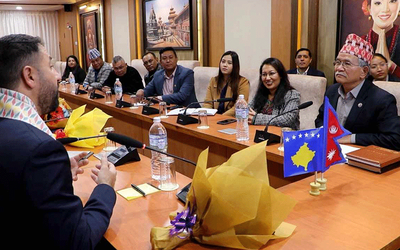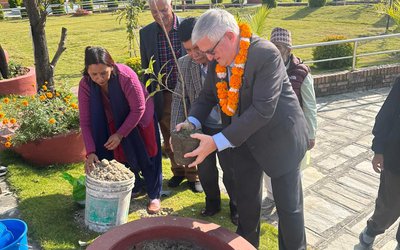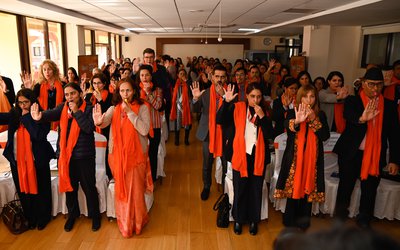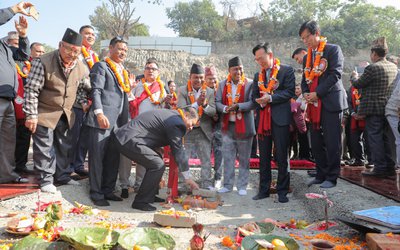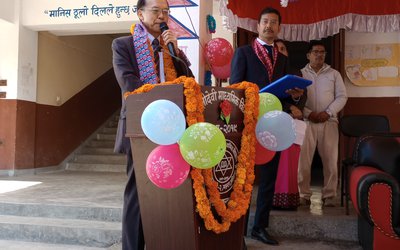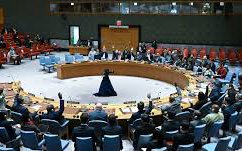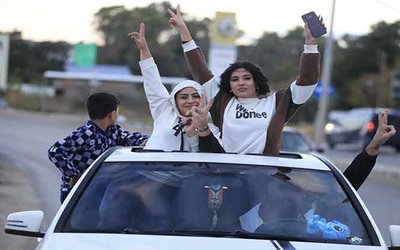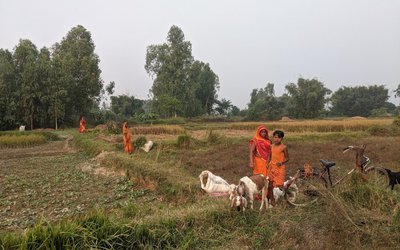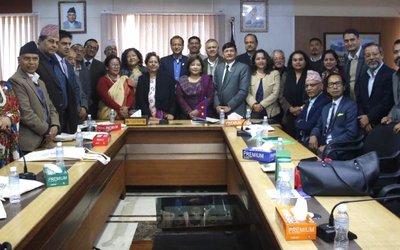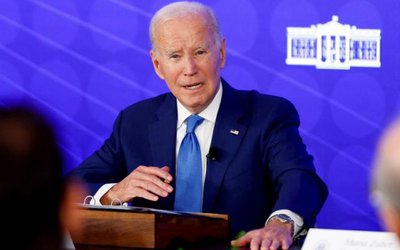
Although Sri Lankan government has agreed to provide money directly to Department of Archeology to reconstruct Bungamati temple under Nepal’s own procurement law, the reconstruction of heritage site has stalled several times in the last two years due to objections by UNESCO and other international agencies for the use of low quality materials and contractors.
Although Sri Lankan Embassy has been releasing the fund for the construction of the temple, the contractor has been delaying the construction work, giving various reasons, including the unavailability of materials.
Recently, local communities are demanding funds to reconstruct the temples and heritage sites in the name of local communities.
Under pressure from Nepal Communist Party affiliated local group, reconstruction Angan Chhe Hanuman Dhoka, which is supposed to be reconstructed by Japan, is uncertain.
The dispute on Agan chhe may affect Japanese support, which has been generously providing support to reconstructions of a number of heritage sites of Kathmandu Valley.
Indian support in heritage reconstruction has also been facing similar problems. After earthquake, India pledged to provide Rs.400 million to reconstruct 28 temples and Chaityas in various parts of earthquake affected districts.
Due to the policies of Nepal government and local community’s frequent intervention, Indian government has also been facing dilemma over whether to use the fund. Looking at the recent disputes on various reconstructions of heritage sites over the use of low quality materials, Indians are reportedly pressing to supply the materials by them.
The earthquake destroyed a number of Chaitya in Sindhupalchwok and Kavre along with Kathmandu Valley. Given the scarcity of resources, use of Indian Exim Bank’s money is very important to complete the reconstruction of heritage sites.
As Nepal’s current procurement act has its own provisions, which is against the grant agreement with India, Nepal government needs to make necessary arrangements to use the Indian assistance.
India has been supporting Nepal for the reconstruction of temples and heritage sites for long. However, government of India did not face any problem od the scale in the past. As there are bigger sites for heritage reconstruction, India’s concern about the use of materials is understandable.
“Nepal needs to be very sensitive on the issues of using the grant and fund of friendly countries like India and Japan. Denying the reconstruction of Angachhe to Japan will send a very bad message to the world community,” said Bhesh Narayan Dahal, outgoing Director General of Department of Archeology. “Similarly, Nepal needs to use fund from government of India to reconstruct all our heritage sites. If there are necessary, we also need to amend the rules.
As per the assistance, India has already offered fifty percent of the materials in kinds and fifty percent in cash. Given the current state of using low quality materials by Nepali contractors, India’s offer to supply the materials has options.
As the reconstruction of temple prolonged due to an unclear policy of the government, Business Community has decided to reconstruct Bhimsensthan Temple, which was given to government of India for reconstruction. This will likely affect the bilateral relations with India like that of Japan in Agan Chhe.
Although Bhaktapur Municipality has already reconstructed a number of houses, international experts expressed concern over the reconstruction. If Bhaktapur Municipality cannot change the present state of reconstruction, UNESCO is likely to withdraw from the world heritage sites’ status given to Bhaktapur palace.
As long as the government continues to follow the current procurement act and political parties continue to use local community to fulfill petty interest, reconstruction of Nepal’s heritage sites is not possible.
If the government and concerned officials continue to play anti friendly game not facilitating for the reconstruction, this will not only delay the process but also harm bilateral relations.

Keshab Poudel
Poudel is the editor of New Spotlight Magazine.
- NEPAL-BANGLADESH POWER TRADE : A Significant Achievement
- Nov 21, 2024
- BEEN: Honoring The Contribution
- Oct 22, 2024
- Nepal Commemorates 7 October And Calls For Release Of All Hostages Including Bipin Joshi
- Oct 07, 2024
- JAPANESE ENVOY KIKUTA YUTAKA: Charismatic Diplomat
- Sep 25, 2024
- POLITCS: Do Or Die
- Sep 13, 2024


